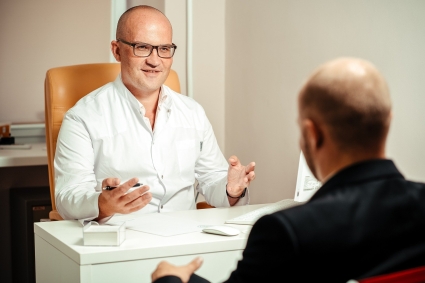The naturopath seeks to re-establish the self-healing capacities that are different and specific to each person. His approach consists of relying on the strengths of the body in order to counterbalance the weaknesses encountered. To this end, he establishes a vitality assessment, which is not a diagnosis but which aims, by various means, to measure the level of vitality, to estimate the overloads and deficiencies in order to stimulate and reinforce these capacities.
What is the role of the naturopath?
The naturopath has a double mission:
- As a health therapist, he or she must enable the patient to regain or maintain a state of optimal health in strict compliance with the principles of naturopathy. A simple nutritional advice is generally not enough to solve a global problem, it will be up to the naturopath to take into consideration all the aspects of the health problem encountered to propose a range of different solutions that the patient will have to choose from.
- As a health guide, he must improve the patient's lifestyle by offering advice on both nutrition and physical exercise. The naturopath remains outside the decisions of the treatment, he only proposes different paths that the patient will choose. The patient is therefore an actor in the promotion of his health. This principle is essential because it allows the patient to adhere better to the treatment and to be fully motivated to follow the principles of naturopathy.
Naturopathy was not built in a day
Often, the amount of work that needs to be done to change bad habits is too immense to be improved in one day. It is better to change one bad habit at a time than to do everything right from the start and not be able to keep it up over time.
Who can consult a naturopath?
As we have seen above, naturopathy is for everyone, at all ages and whatever the state of health: men, women, children, healthy people, etc. You can therefore consult a naturopath at any time in your life. In a preventive way, to maintain a good state of health, to improve one's lifestyle but also to treat disorders that are already present in daily life.
Is naturopathy dangerous?
Naturopathy is full of promise, but it is by no means dangerous. This profession brings together various profiles of naturopaths with practitioners who have undergone good training and others who have not...It is this quality of training that is responsible for dangerous practices. But why this difference in the quality of the training of naturopaths you will ask me dear naturopath-reader? Because this profession is not regulated by the French state, it is not recognised by a training or a diploma. Deviations and abuses due to a lack of controls are therefore possible.
How to choose a naturopath?
The naturopath generally works as a liberal profession. That is to say that he will work on his own account, generally presenting his activity on a website. The first thing to do is to check the google reviews left by former patients. The second thing to do is to check the training followed by the naturopath.
In our experience, we suggest practitioners from schools approved by the FENA. In a non-exhaustive way, we recommend the practitioners having followed their training from the following schools: Aesculape, Anindra, Ecole Dargère univers, Euronature, Institut Hilegardien, Isupnat, Académie de vitalopathie and Cenatho.
These schools have a good reputation for the quality of their training and for the real preparation for the future profession of naturopathy.
Updated on 09 March 2022 at 21:40







